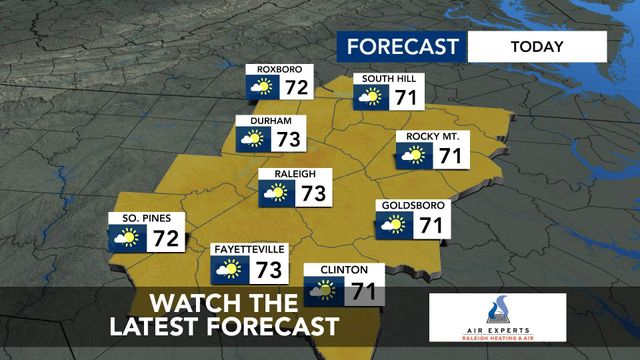Republicans gain control of state Supreme Court. How that could impact voting rights and abortion access
North Carolinians on Tuesday voted to shift the balance of power in the North Carolina Supreme Court to a conservative majority — a pivot that could have major ramifications for abortion restrictions, how future elections are conducted and which party’s congressional candidates will be sent to Washington, D.C.
Voters elected Republicans Trey Allen and Court of Appeals Judge Richard Dietz to the state’s highest court, delivering Republicans the seats they needed to take the majority of the court, which currently favors Democrats 4-3.
Dietz defeated Democratic appeals court Judge Lucy Inman. Allen defeated Democratic incumbent state Supreme Court Associate Justice Sam Ervin IV.
Dietz and Allen haven’t said how they’d rule on certain cases, but they’ve suggested they’d show more deference to state lawmakers and narrowly interpret future laws.
Allen, who is general counsel of the North Carolina Administrative Office of the Courts, said on the campaign trail that he’d work to reign in what he sees as judicial overreach. He also compared his judicial philosophy to that of the late U.S. Supreme Court Associate Justice Antonin Scalia and current Justice Clarence Thomas, though he said he’d place greater emphasis on judicial precedents than Thomas.
Dietz has signaled a desire for more consensus building and a strong desire to improve the court’s reputation. “In eight years as a Court of Appeals judge, I’m the only judge who’s never written a dissent and the reason is because I really believe in this idea of collaboration and consensus building,” Dietz said at a September event.
Allen called Ervin a “gracious” opponent.
From his home in Morganton, Ervin said he called and congratulated Allen Tuesday night. “I told him I hoped he enjoys it as much as I did,” Ervin said. “I’ve had the privilege of having a great deal of support in my campaigns and got a great deal of support in this one.
“It means more to me than I can put into words,” he said.
The incoming state Supreme Court justices will serve an eight-year term on the bench. They’ll be sworn into office in January. In 2024, one seat currently held by a Democrat will be up for grabs.
The state Supreme Court has taken on a number of contentious issues in the past year, and it is all but assured to see new divisive cases in the years ahead.
Among them could be abortion laws if Republicans gain veto-proof legislative majorities or parlay a 2024 gubernatorial win with simple legislative majorities. A U.S. Supreme Court’s decision this year overturned the landmark Roe v. Wade, which established federal abortion protections in 1973.
North Carolina’s Supreme Court also could revisit old decisions, including a 4-3 ruling split along ideological lines that was issued days before the November election. In the Leandro education funding lawsuit, a majority of justices last week upheld a lower court’s decision compelling state lawmakers to transfer taxpayer dollars into a massive state public education improvement plan.
The court’s role in ruling on legislative and congressional lines is also expected to come into focus.
When a new state congressional district map is drawn, the state Supreme Court’s makeup could determine how evenly North Carolinians are represented politically.
Voting lines are drawn by the party controlling the state legislature. If the minority party or others find fault in those proposed boundaries, they often challenge them in court. The state’s latest voting lines were challenged, ultimately ending up before the high court.
If challenges to new voting districts drawn by the state's Republican-controlled legislature reach the state Supreme Court, a more deferential group of justices could allow for a disproportionate share of Republican representation in the U.S. House.
In the meantime, the current Democratic-controlled high court took up a voter identification case last month and it could decide other important cases before the conservative majority steps into power next year.
Adding to the GOP’s control of the North Carolina courts, Republicans won all four court of appeals races.













